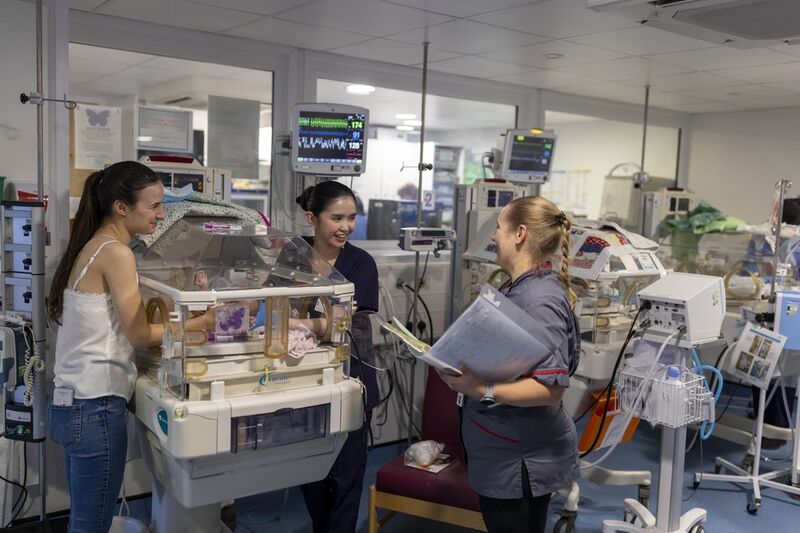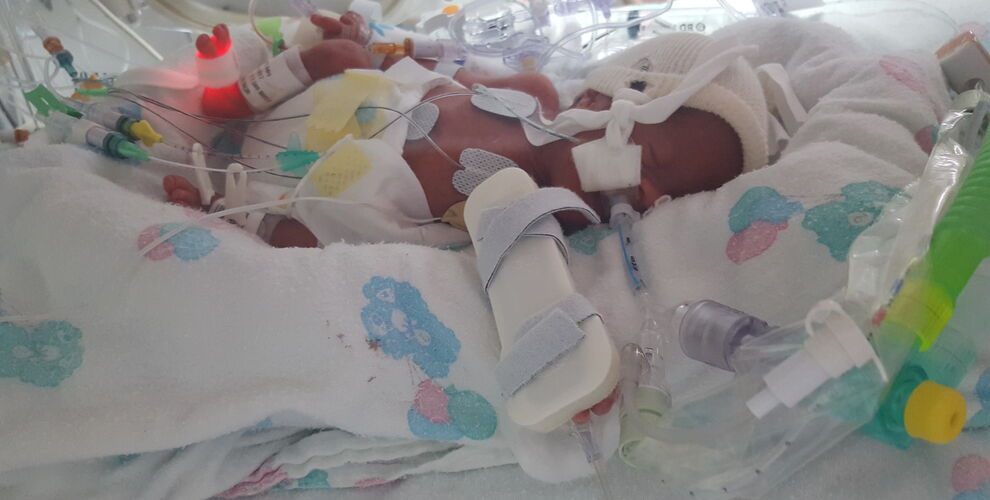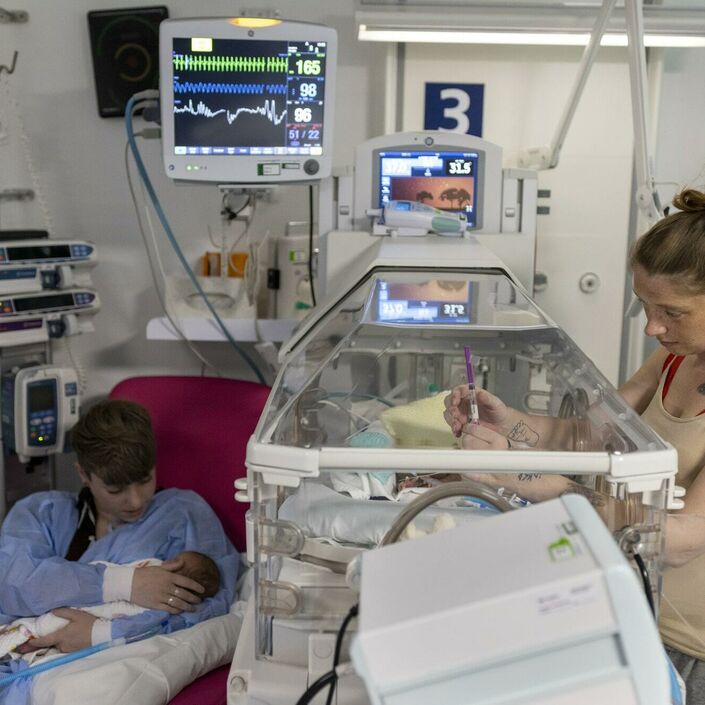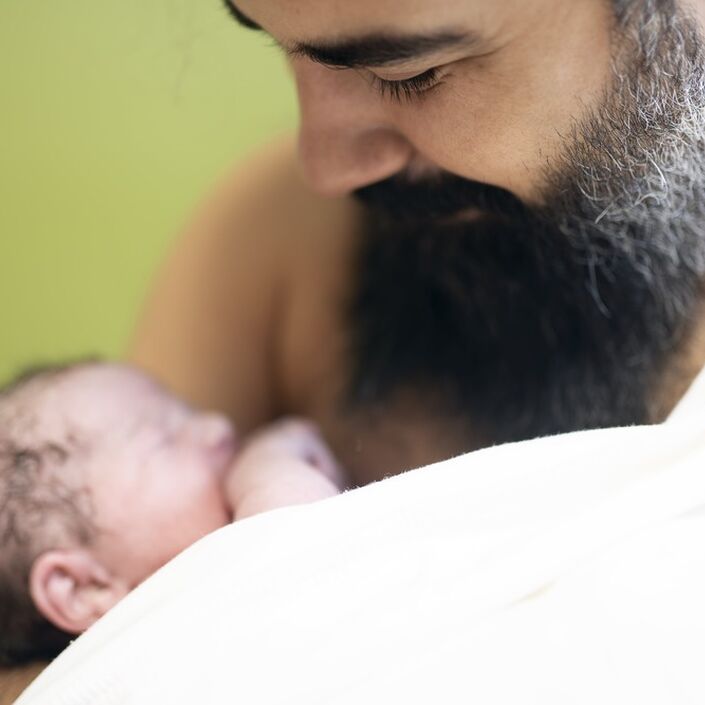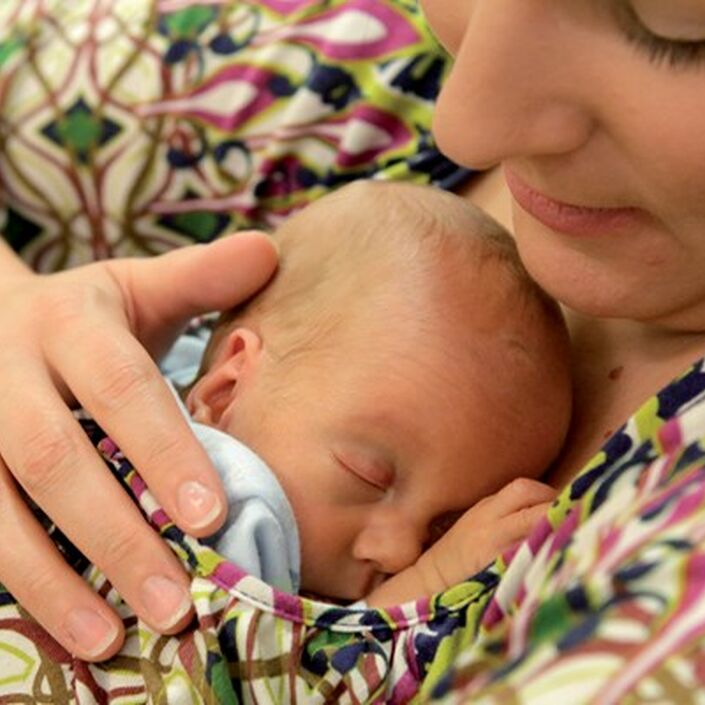All units have different staff, depending on the level of care that needs to be given. Ask your unit staff if you want to find out more about the people listed here.
Nursery nurses
In some units, nursery nurses contribute to the smooth running of the unit by supporting the nurses with a number of different tasks.
They work with other members of the neonatal team.
They also often work with the community outreach or discharge team to help parents and babies prepare for going home.
Pharmacists
Pharmacists look after your baby’s medicines.
They can tell you what medicines your baby is taking and provide information about the benefits and possible side effects.
Therapists
There are different types of therapists that specialise in different parts of your baby’s development.
Physiotherapists and occupational therapists are trained to help with your baby’s physical and social development.
Speech and language therapists are trained to assess your baby’s ability to feed and swallow.
Dietitians
Dietitians make sure that your baby gets the best nutrition possible. They can explain what nutrition your baby needs.
Infant feeding specialists
An infant feeding specialist may be involved with supporting you with milk production and feeding your baby. They may also be called a lactation consultant, an infant feeding coordinator, infant feeding specialist or and infant feeding lead.
They will help you during your stay and put plans in place to support your feeding journey when you go home.
Ophthalmologists and auditory technicians
These members of staff will check your baby’s eyes and ears.
Radiographers
You will meet these staff members if your baby needs an X-ray or scan. If your baby needs an ultrasound this will be carried out by a consultant who specialises in X-rays and scans.
Students and trainees
You may meet newly-qualified doctors who have just finished medical school, medical students or nursing or midwifery students. You should always be asked whether you are happy for students to watch and learn from the health professionals providing care for your baby.
Psychotherapists, psychologists and counsellors
These professionals can help you to talk about how you are finding your time on the neonatal unit. Looking after your own needs on the unit, as well as your baby’s, is very important. Your unit can provide you with details of someone who you can talk to.
Community neonatal nurses/discharge nurses
Some units might have dedicated staff to help you through the process of leaving the unit, and adapting to your baby’s care at home.
Social workers or family support workers
These members of staff can support families and carers with emotional and practical needs . This may include advice and support around the cost of having a baby in hospital, and adjusting to the hospital environment.
Porters and cleaners
The members of the team who keep the day-to-day maintenance of the unit running, and clean the unit and equipment.
Clerical staff
Members of the team who manage the office work of the department.
Faith leaders/chaplaincy team
Some parents find it helpful to speak to a member of the hospital’s chaplaincy team. This team provides support from members of many different faiths. If you would like a visit, ask a nurse if this can be arranged.
